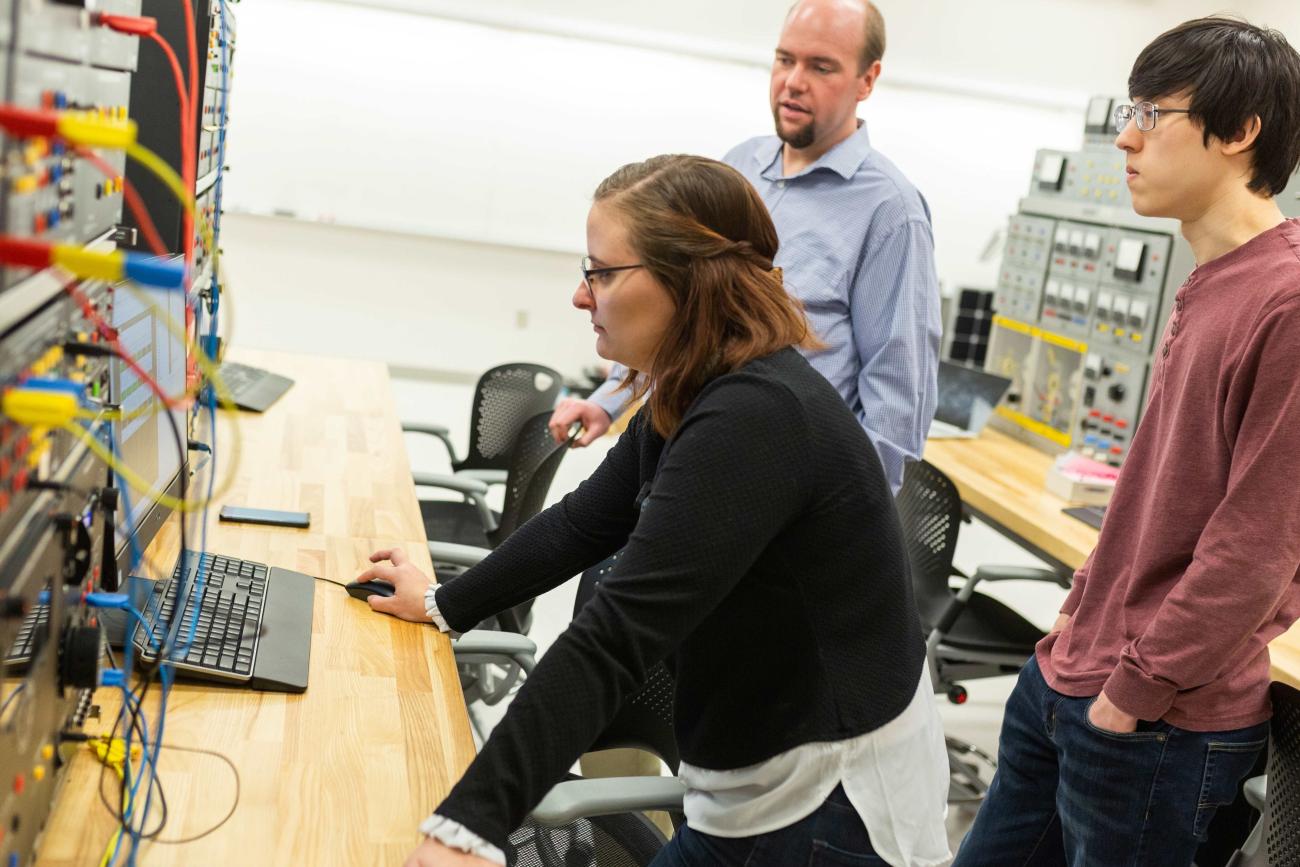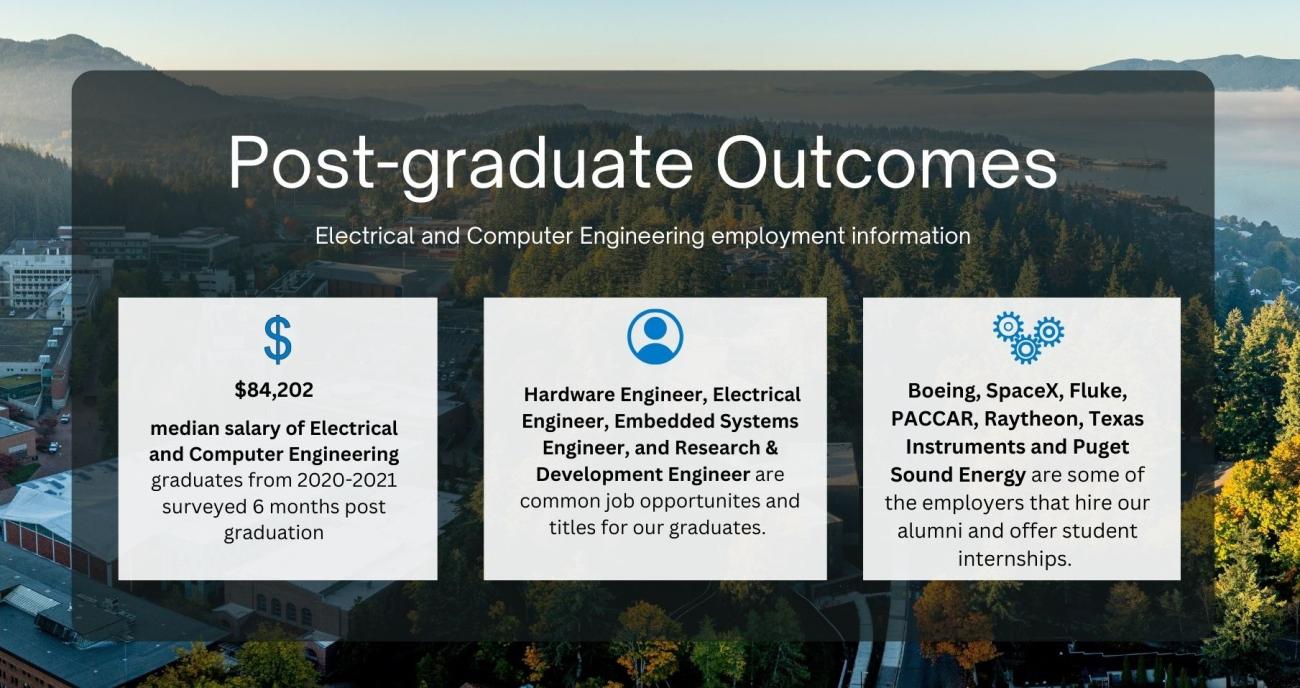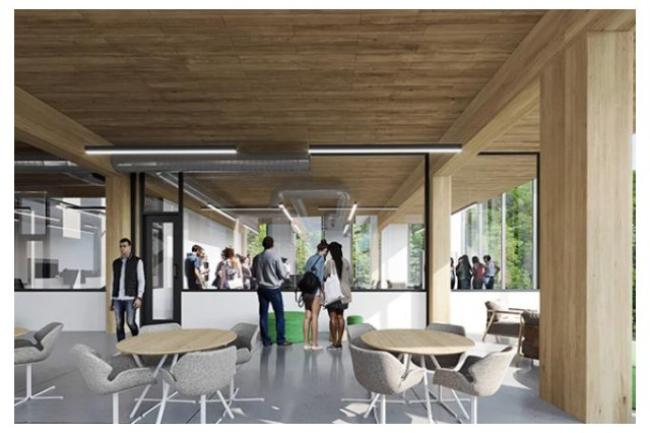Electrical and Computer Engineering
At a Glance
Degree Type
Bachelor of Science
Total Credits
146
Degree Requirements
Accreditation
Contacts
Lisa Ochs
Pre-major Advisor
Andy Klein
Program Director

Program Overview
Western's Engineering and Design department offers a Bachelor of Science degree in Electrical and Computer Engineering. The program serves current students, industry, the University, and citizens of Washington state by preparing students to find pragmatic engineering solutions to problems, while understanding the impact of their solutions in a global, economic, environmental, and societal context. The educational experience we provide emphasizes lab-based experiential learning, teamwork, communication, and critical thinking, while the program curriculum provides current, practical engineering knowledge built on a solid foundation in math and science. The Electrical and Computer Engineering program is accredited by the Engineering Accreditation Commission of ABET, https://www.abet.org. Accreditation and enrollment information is available here.
The student begins the program in the second quarter of their freshman year with an orientation course, and is generally enrolled in one or more major courses each quarter until graduation. Many laboratory courses provide a combination of practical experience with design, and ultimately lead to a culminating project that spans the senior year. The students may choose a concentration in Electronics, Energy, Artificial Intelligence and Machine Learning, or Wireless Networking and Signal Processing. All concentrations include a common electrical and computer engineering core which includes courses in digital and analog electronics, embedded microcontrollers, communications, and controls.
Concentrations
The Electronics concentration focuses on the development, design, and application of circuits, devices, and firmware for embedded systems, and includes advanced digital and analog electronics content.
The Energy concentration addresses the sources, generation, control, and utilization of electric power, energy conversion and storage, and smart power topics such as system analysis, protection and stability, solid state motor control, and industrial process control systems. Projects are normally interdisciplinary, in collaboration with faculty in the Institute for Energy Studies.
The Wireless Networking and Signal Processing concentration offers courses in digital signal processing, advanced communication systems, and networking technologies, and leads to an understanding of the design of wireless communication systems and networks.
The Artificial Intelligence and Machine Learning concentration focuses on techniques that process and analyze data to enable machines to make predictions and decisions to accomplish complex tasks, and provides an overview of the use of ML and AI in engineering, the fundamental principles and algorithms, and the impact of ML and AI on humans and society.
In addition, students in the major may propose a custom concentration in consultation with their faculty advisor. All Higher Level EECE Electives and the academic terms in which they will be taken must be specified, and the proposed custom concentration must be approved by the Program Director. If approved, the student will be granted registration privileges for one of the existing capstone project sequences.

Alumni
Colter Creson
Class of 2023
Advanced Controls Engineer, PACCAR
"The Electrical Engineering program at Western Washington University offers a transformative experience for those who are committed to making the most of it. The program’s hands-on learning approach and extensive lab work ensure that students are well-prepared for real-world environments, offering a distinct advantage over more theory-driven programs.
Success in this program comes from hard work and taking personal responsibility for your education. The professors here provide invaluable support every step of the way. Also, remember that kindness and soft skills are just as important as technical prowess. Use this time to develop these interpersonal skills, as they are essential in any professional setting."

Shelby Powers
Class of 2023
Commencement Speaker
Electrical and Computer Engineer, NAVSEA
During her undergraduate career, Shelby served as a teaching assistant for 14 different course offerings. She also has held leadership positions with IEEE, a student club chapter in our department.
Shelby also served as a peer mentor through the BEES program, further demonstrating her commitment to mentorship and leadership.
Shelby participated in undergraduate research alongside faculty. She co-authored and co-presented at the IEEE/MIT Undergraduate Research Technology Conference in 2021. Her dedication to supporting and empowering her peers is truly commendable, as is her commitment to academic excellence and research in electrical and computer engineering.

Arick Grootveld
Class of 2021
Syracuse University, PhD Candidate
"Deciding to study Electrical and Computer Engineering at WWU was one of the best choices I have ever made. Phenomenal faculty, hands on lab experiences, and engaging research opportunities are just a portion of what makes the program so incredible. I can say without a doubt that this amazing program has made me the person I am today."
Kaiser Borsari Building
Opening Winter 2025

Learn more about the plan for new spaces for Electrical and Computer Engineering, Computer Science, and the Institute for Energy Studies.
